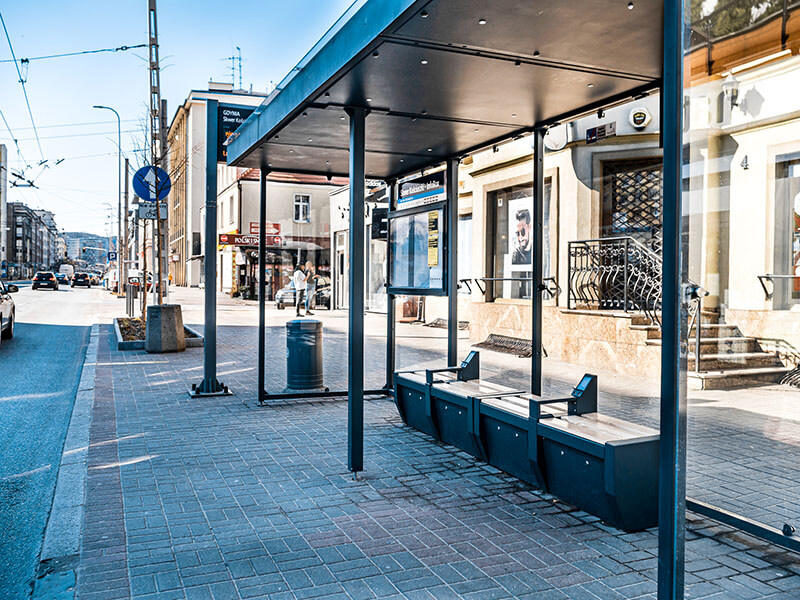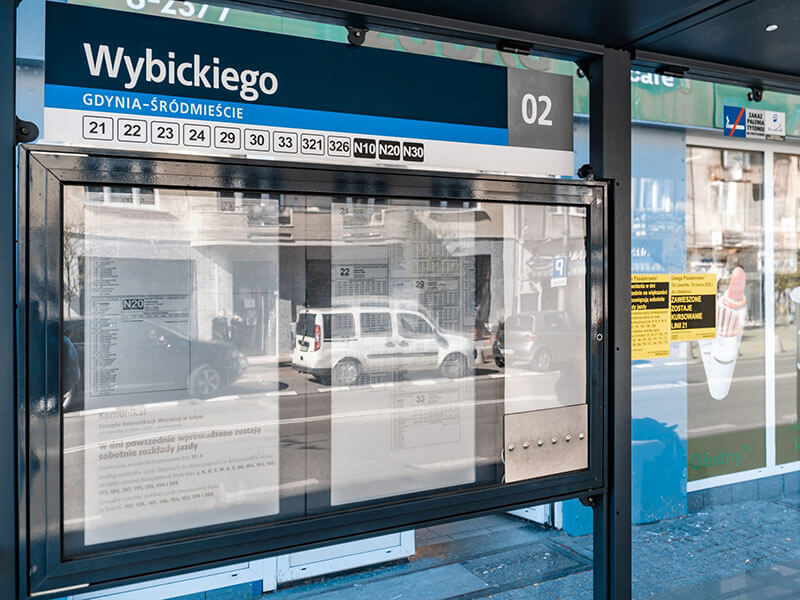The implementation of the SEEDiA solar bus shelters in Gdynia shows what values they bring to the everyday life of the city for Smart City. Let’s take a look at the most important factors that allow you to optimize costs, increase the safety of residents and better adapt to the new reality that we have faced in the time of the COVID-19 pandemic.
- How do solar bus shelters reduce power costs?
The act requires that up-to-date information is always displayed on shelters or posts. Servicing the infrastructure, which includes the creation of timetables, printing, commuting, service technicians and external service generate large expenses. In the case of a solar bus shelter with an e-paper display, we have all the information updated remotely and on a regular basis, thanks to the power supply by solar energy, which reduces the costs of energy supplied to the bus shelters. In Gdynia, it gives 5000-7000 PLN energy savings during the year.
- How significantly reduce the cost of installing shelters?
Solar bus shelters also mean lower installation costs compared to traditional shelters. There is no need to pull the cable and make a standard connection because they use the independent energy they get from the solar panels. In this way, you can save as much as 80 000-100 000 PLN on the installation itself.
- How do they affect security and reduce officials’ costs?
Officials do not need to drive to the solar bus shelter thanks to the remote management of the e-paper display. They can work safely from the office, and the costs of commuting and printing timetables are reduced to zero. In this way, the entire communication is greener for the city, and the annual savings amount to 4000-5000 PLN.
Such solutions work even on a single scale, when the shelters are set up individually, and in particular when cities decide to replace all shelters with new ones, which has a very good effect on the one hand on marketing and on the other on the optimization of public space.




